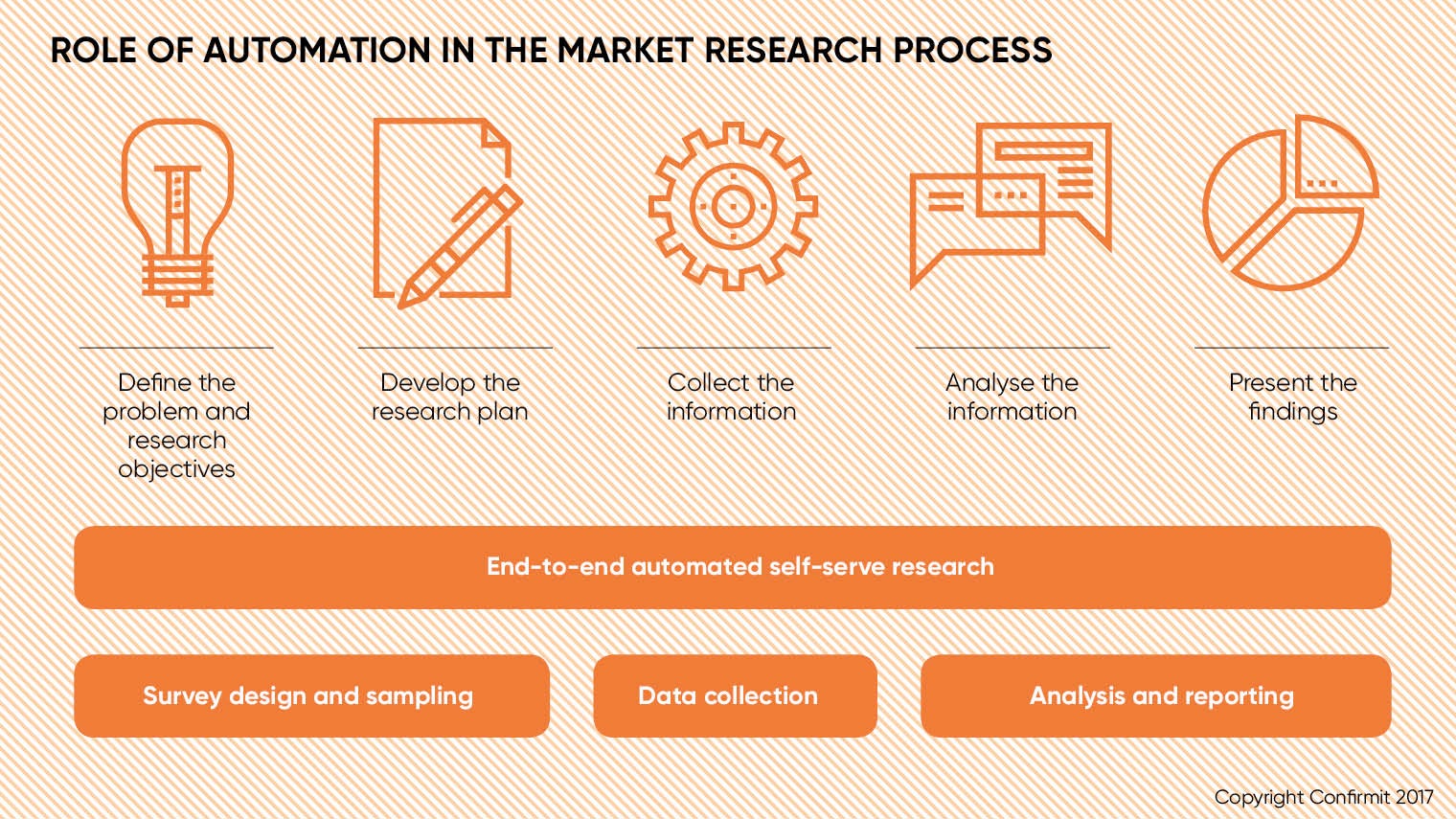 “At some point many businesses stopped seeking efficient approaches and started clinging to the established way of doing things,” says Wale Omiyale, senior vice president at Confirmit, a market research technology and solutions provider. “They became suspicious about innovative tech that challenges existing methods. Many became positively precious about sophisticated analytical processes that should never be questioned.”
“At some point many businesses stopped seeking efficient approaches and started clinging to the established way of doing things,” says Wale Omiyale, senior vice president at Confirmit, a market research technology and solutions provider. “They became suspicious about innovative tech that challenges existing methods. Many became positively precious about sophisticated analytical processes that should never be questioned.”
Then things started going wrong, he believes. Way off-the-mark polling results for elections and referendums left researchers standing like rabbits in the headlights as the world demanded to know what had happened. The soul-searching began and confidence began to wane. “The market research industry now faces a long journey, one that will leave it unrecognisable in a few years,” explains Mr Omiyale.
Some market research businesses are now avoiding the label altogether. They refer to themselves as consultants or advisers. Data remains core to what they do, but these are the pioneers who understand that the future lies not in methodologies, but in strategic advice and actionable insight.
The sheer volume of data in the world has increased exponentially in recent years. How the industry exploits information forms the foundation for the success of research in the future. Not only must businesses make best use of the evolving technologies to understand data better, but they need to develop the skills of their teams to incorporate data science.
“The future of market research lies in combining existing research skills, technologies and methodologies with new data science and social listening approaches that enable researchers to deliver true business insight,” says Mr Omiyale. “This means taking a collaborative approach with other business disciplines to deliver understanding of all the data generated, ensuring it can be digested, manipulated and acted upon more quickly to drive strategic change.”
End-users are also now more demanding. They need faster, cheaper and more strategic insights to drive business decisions, and they need it now. For years market researchers have focused on meeting this demand, while new technologies have emerged to automate activities and revolutionise the approach.
The automation of market research has a long history, but modern tech-based tools now span the entire life cycle of research and bring a wealth of benefits, not just to end-clients, but also to research organisations themselves.
For example, social listening is a rich source of insight if data can be handled effectively. There are approximately two billion social media accounts including timelines on Twitter, YouTube and Facebook. These have become digital documents of experiences over time. They use algorithms to automate shares, tags and tweets, serving up micro-moments so users can focus on enjoying and discussing what they find meaningful in those streams of thoughts, pictures and videos.

“Considering the importance of a consumer’s socially shared opinions, it is imperative that researchers can provide insight into what is being said about a client’s brand across social channels,” says Mr Omiyale. “Social listening can give brands the language that its customers use, so organisations can match their campaigns to people’s demands. Businesses can now analyse unsolicited feedback without manually monitoring review sites, discussion forums or blogs.”
Administrative tasks are now capably handled by automated tools. This has allowed researchers to evolve their roles and daily tasks. Some may see this as a structural issue, but the best research teams are evolving into specialist hubs, where researchers become data scientists and reports become strategic business guidance.
“Automation is increasing the requirement for more broadly skilled project managers, where in-depth subject knowledge is less important, but an understanding of the research process is crucial,” says Mr Omiyale. “This certainly impacts the role of the research subject matter expert, but allows organisations to be more flexible in recruitment and service delivery.”
Pressure is also increasing on corporations to invest more in technology to keep pace with evolving customer experiences, as well as extending growth. Currently, market research organisations spend an average of just 1 per cent of revenue on technology, compared with an average of 3.3 per cent across all primary industry sectors, according to a survey by Gartner.
“Yet there are many tools and solutions that promise to deliver faster, deeper and cheaper insight, answering the pressure to do more with less,” says Mr Omiyale. “The sheer volume of investment in technology is greater than at any point in history and will grow as providers develop better solutions that drive efficiency and cost-savings.”
While defining and evaluating return on investment is neither quick nor painless, companies that do so will automate redundant activities, simplify the research process and streamline data collection. They can take the lead in being able to mix multi-source, multi-channel data, analyse it as a single data set and report on it in visual ways to provide more strategic insight for clients.
By demonstrating a willingness to embrace new technologies and update ways of working, these organisations will have the flexibility, scalability and strategic desire to adapt their business rapidly to client needs, whatever those needs may be.
“The move away from traditional market research and towards the insight industry much more accurately reflects the role that researchers will play in the decades ahead,” Mr Omiyale concludes. “The insight researchers provide will put clients back in control, bringing them closer to the nuances of their business and giving them more targeted information for decision-making.”
Technology will also be at the heart of this change, enabling new ways of working via automation and providing more collaborative ways of doing research. “This will take the industry out of the shadows and into a central position as agents of change in an insight-driven world,” says Mr Omiyale.
For more information please visit confirmit.com





